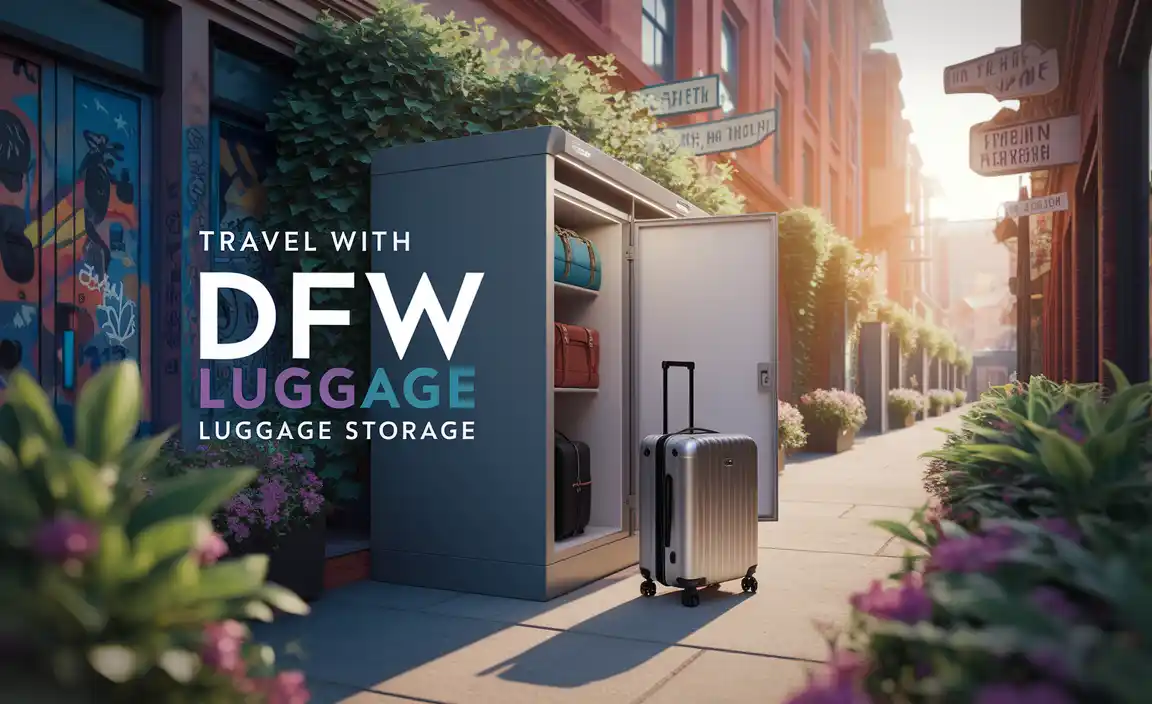Algeria Accessible Travel Guide: Essential Tips
Yes, traveling to Algeria can be an accessible and fulfilling experience with careful planning. This guide offers essential tips for navigating Algeria with ease, focusing on practical solutions for mobility, accommodation, and cultural engagement, ensuring a comfortable and memorable journey for all travelers.
Planning a trip to a destination as diverse and culturally rich as Algeria can feel overwhelming, especially when considering accessibility. Many dream of exploring its ancient Roman ruins, vibrant souks, and stunning desert landscapes, but concerns about navigating unfamiliar terrain can hold them back. It’s easy to feel frustrated by a lack of readily available information. But don’t worry! Traveling to Algeria with specific needs is absolutely achievable. This guide is here to break down the essentials, offering practical advice and reassuring tips to make your Algerian adventure smooth, comfortable, and unforgettable. We’ll cover everything you need for a stress-free journey.
Planning Your Accessible Trip to Algeria
Embarking on an adventure to Algeria opens up a world of ancient history, breathtaking landscapes, and vibrant cultures. For travelers who require accessibility considerations, a little extra planning goes a long way in ensuring a smooth and enjoyable experience. Think of it as building a solid foundation for an incredible journey. We’ll cover the key aspects, from understanding Algerian infrastructure to packing smart.
Understanding Algeria’s Accessibility Landscape
Algeria, like many countries, is on a journey to improve its accessibility. While significant progress is being made, you’ll find a variety of situations across different cities and regions. Major tourist hubs and newer facilities tend to be more accommodating. Expect a mix of accessible and less accessible areas, particularly in older historical sites and more remote regions. Be prepared for varying levels of infrastructure, from modern hotels to more traditional guesthouses.
The most important thing is to approach your trip with flexibility and a proactive mindset. Researching specific locations you plan to visit is key. For instance, a large, modern hotel in Algiers will likely have better accessibility features than a small riad in the Casbah. Similarly, well-preserved Roman ruins like Timgad might have some accessible pathways, but challenging terrain is to be expected.
When to Visit: Best Times for Accessible Travel
Choosing the right time to visit Algeria can significantly impact your comfort and ease of travel. The weather plays a crucial role, especially if you have mobility challenges or require specific temperature conditions.
- Spring (March to May): This is often considered an ideal time. Temperatures are mild, ranging from pleasant to warm, making outdoor exploration enjoyable. The landscape is also particularly beautiful with wildflowers blooming in many areas.
- Autumn (September to November): Another excellent choice. Similar to spring, the weather is agreeable, with cooler temperatures than the summer heat. This is also a great time for cultural festivals.
- Summer (June to August): Can be very hot, especially in the Sahara desert and southern regions. While still possible, travel might be more challenging due to extreme heat. Days are long, which is good for sightseeing, but you’ll need to plan around the midday sun.
- Winter (December to February): Generally mild along the coast, but can be cold and even snowy in the mountainous inland areas. The Sahara can experience chilly nights. It’s a quieter season, which can be a plus.
For those sensitive to heat or seeking more comfort for longer excursions, spring and autumn are generally the best bets. Always check weather forecasts closer to your travel dates.
Essential Documentation and Visas
Securing the necessary travel documents is a fundamental step for any international trip. Ensure you have:
- Passport: Valid for at least six months beyond your intended stay and with sufficient blank pages.
- Visa: Most nationalities require a visa to enter Algeria. Apply well in advance through the Algerian embassy or consulate in your country. Research the specific visa requirements for your nationality. For some specific travel purposes, like certain organized tours for accessibility, information might be available through specialized travel agencies that work with Algerian authorities.
- Medical Information: Carry a copy of your medical records, prescriptions, and any doctor’s notes, especially if you require specific medical supplies or equipment. It’s also wise to have emergency contact information readily available.
Double-check all entry requirements and visa regulations with the Algerian embassy or consulate in your home country before you travel.
Navigating Algeria: Transportation and Accommodation
Getting around and finding a comfortable place to stay are critical aspects of accessible travel. Algeria presents a range of options, and understanding these will help you plan your routes and relax during your stay.
Accessible Transportation Options
Transportation within Algeria can be a mixed bag when it comes to accessibility. Planning your internal travel carefully is essential. Here’s what to consider:
- Air Travel: For long distances, domestic flights on airlines like Air Algérie are efficient. Major airports typically have some accessible facilities, but it’s crucial to inform the airline and airport in advance about your specific needs (e.g., wheelchair assistance, priority boarding).
- Trains: Algeria has a railway network, primarily operated by the SNTF (Société Nationale des Transports Ferroviaires). While train travel can be a scenic way to see the country, accessibility varies greatly. Some newer trains and main stations may offer better facilities, but it’s advisable to contact SNTF directly or inquire upon arrival to understand current accessibility provisions.
- Taxis: Taxis are widely available in cities. Standard taxis may not be equipped for wheelchairs. For accessible transport, you might need to pre-book a private minivan or specialized taxi service through your accommodation or a local tour operator. This requires research and advance booking.
- Private Vehicles/Tours: Hiring a private car with a driver is often the most flexible and accessible option for getting around, especially for exploring multiple sites or traveling between cities. You can specifically request a vehicle that can accommodate your needs. Many specialized tour operators cater to accessible travel and can arrange this.
- Buses: Intercity and local buses generally have limited accessibility features and may not be suitable for individuals with significant mobility impairments.
It’s highly recommended to arrange transfers and longer journeys in advance, especially if you require specific vehicle types or assistance.
Finding Accessible Accommodation
Accommodation is a key component of a comfortable trip. While dedicated accessible hotels are not as common as in some Western countries, you can find suitable options with careful selection:
- Larger Hotels: Modern, international chain hotels or larger, well-established hotels in major cities like Algiers, Oran, and Constantine are more likely to offer accessible rooms, elevators, and bathroom facilities. Always contact the hotel directly to confirm the specific accessibility features of the room and any common areas. Don’t rely solely on booking website descriptions.
- Apartment Rentals: Renting an apartment or a holiday home through platforms like Airbnb can sometimes offer more space and a private, accessible setup. Look for ground-floor apartments or those with elevator access. Read reviews carefully and communicate with the host about your needs.
- Guesthouses and Riads: In historic areas like the Casbah, traditional guesthouses (riads or dar) offer a unique cultural experience. However, these often have many stairs and may not be suitable. If considering, prioritize those advertised as having accessible ground-floor options or modern renovations.
- Specialized Accessible Travel Agencies: For a completely stress-free experience, consider booking through agencies that specialize in accessible travel. They have established relationships with hotels and can confirm specific room features and services.
When booking, be specific about your requirements: roll-in showers, grab bars, door widths, elevator access to all floors, and proximity to accessible transportation. A sample table illustrating general accessibility considerations for accommodation types:
| Accommodation Type | General Accessibility Considerations | Tips for Accessible Travelers |
|---|---|---|
| Larger/Modern Hotels | Likely to have accessible rooms, elevators, and some adapted bathrooms. Common areas are usually more navigable. | Contact directly to confirm room details (height of beds, type of shower, grab bars). Ask about accessible routes within the hotel. |
| Apartment Rentals | Varies greatly. May offer more space and privacy. Ground floors or elevator access are key. | Prioritize listings with photos of bathrooms and entrances. Direct communication with hosts is crucial. |
| Traditional Guesthouses (Riads/Dars) | Often challenging due to historic architecture, stairs, and narrow passages. Limited accessible options. | Only consider if specifically advertised as accessible. May require significant compromise. |
| Luxury Resorts (Coastal or Desert) | Tend to have better modern facilities, including accessible rooms and amenities. | Inquire about accessibility for specific activities and excursions offered by the resort. |
Experiencing Algeria: Sightseeing and Activities
Algeria boasts an incredible array of attractions, from ancient Roman cities to vast desert expanses. Making these experiences accessible involves smart planning and knowing what to expect.
Accessible Historical and Cultural Sites
Algeria is home to UNESCO World Heritage sites and numerous historical gems. Navigating these often requires flexibility:
- Roman Ruins (Timgad, Djemila, Tipasa): These are generally outdoor sites with uneven terrain. While some main pathways might be manageable, exploring thoroughly may be challenging. Timgad, with its relatively well-preserved grid plan, might offer more manageable routes than the more complex Djemila. Hire a local guide who can help navigate the best paths and provide detailed historical context.
- Casbah of Algiers: A UNESCO World Heritage site, this historic quarter is a labyrinth of narrow, winding streets, many with stairs. While atmospheric, it’s very difficult to navigate with mobility aids. A guided tour focusing on accessible viewpoints or specific accessible sections might be possible, but full exploration is unlikely.
- Museums: Major city museums, such as the National Museum of Antiquities and Islamic Art in Algiers, are more likely to have modern facilities, including elevators and ramps, although this can vary. Always check in advance.
- Modern Cities: The Corniche in Algiers offers a pleasant, relatively flat promenade. Modern sections of cities like Oran and Constantine often have wider sidewalks and accessible public spaces.
For sites with challenging terrain, consider using a sturdy, all-terrain wheelchair if possible, or focus on accessible viewpoints and guided explanations rather than intensive physical exploration.
Desert Adventures: Sahara Accessibility
The Sahara Desert is a major draw, and experiencing it can be adapted for accessibility:
- Accessibility Challenges: Sand is inherently difficult for wheelchairs and mobility aids. Direct desert trekking is generally not accessible.
- Accessible Options:
- Camel Treks with Support: Some operators can arrange short, gentle camel rides with significant assistance, allowing you to experience the desert landscape without extensive travel.
- 4×4 Excursions: A 4×4 vehicle can take you into accessible desert areas. You can experience the vastness and beauty from the vehicle or alight at chosen points in more stable terrain. Many desert camps near accessible routes cater to tourists and can often accommodate specific needs with advance notice.
- Desert Hotels/Auberges: There are established desert hotels and lodges that are built with more modern infrastructure and accessibility in mind, often situated near more accessible desert entry points.
When planning a Sahara trip, work with specialized tour operators who understand accessibility needs. Be realistic about what’s possible and focus on enjoying the unique environment through adapted experiences.
Engaging with Local Culture
Connecting with the local culture can be a highlight of any trip. Here’s how to do it accessibly:
- Markets (Souks): Many souks are bustling, dense, and can be crowded with uneven flooring. Visiting during off-peak hours can help. Focus on accessible sections or smaller craft shops that may be easier to navigate.
- Cafes and Restaurants: Many cafes and restaurants in modern areas or larger hotels will have accessible entrances. Enjoying a mint tea or local cuisine is a wonderful way to soak in the atmosphere.
- Guided Tours: Hiring a knowledgeable local guide is invaluable. They can help navigate, ensure your safety, and provide insights into local life. Inform them of your specific needs beforehand.
- Festivals and Events: Attending local festivals offers a vibrant cultural immersion. Research event venues for accessibility in advance.
Learning a few basic Arabic or French phrases can also greatly enhance your interactions and show respect for the local culture.
Practical Tips for Comfort and Health
To ensure your journey is not only accessible but also comfortable and healthy, consider these practical tips. These are universal travel hacks that become even more crucial when managing specific needs.
Packing Essentials for Accessible Travel
Smart packing can make a world of difference. Consider these items:
- Comfortable Clothing: Lightweight, breathable fabrics are key, especially in warmer months. Pack layers for cooler evenings or air-conditioned interiors.
- Footwear: Comfortable, supportive shoes are a must. If you use mobility aids, ensure your footwear enhances stability.
- Medications and Medical Supplies: Carry more than you think you’ll need, along with copies of prescriptions. If you use adult diapers or child diapers for extended travel, long flights, or peace of mind, pack an adequate supply. Brands specifically designed for long-wear or high absorbency can be a lifesaver, minimizing the need to search for them in an unfamiliar country. Familiar brands like Depend or TENA, or specialized children’s brands, can offer trusted protection. It’s also wise to pack discreet carrying bags or discreet disposal options.
- Mobility Aid Accessories: Chargers for electric wheelchairs, repair kits for manual chairs, extra batteries, and spare parts if applicable.
- First-Aid Kit: A comprehensive kit with bandages, antiseptic wipes, pain relievers, and any personal medical items.
- Snacks: Non-perishable, familiar snacks can be comforting and provide energy, especially when exploring busy areas or on long journeys.
- Hydration: A reusable water bottle. Staying hydrated is crucial, particularly in warmer climates.
Consider travel-sized personal care items to save space. For example, instead of bulky bottles, opt for travel packs of wipes or sanitizers. If managing children’s needs, travel-sized diaper creams or wet wipes are essential.
Health and Safety Considerations
Prioritizing your health and safety ensures a worry-free trip:
- Healthcare: Ensure you have comprehensive travel insurance that covers medical emergencies and repatriation. Research reciprocal healthcare agreements if applicable to your nationality. Know the location of the nearest reputable hospitals or clinics at your destinations.
- Food and Water: Drink bottled or purified water. Be cautious with street food and opt for freshly cooked, hot meals from busy establishments. When dining, communicate any dietary restrictions clearly.
- Sun Protection: Use high-SPF sunscreen, wear hats, sunglasses, and light, protective clothing, especially in the desert and during summer.
- Heatstroke Prevention: Stay hydrated, avoid strenuous activity during the hottest parts of the day, and seek cool, shaded places to rest.
- Emergency Contacts: Keep a list of emergency numbers (police, ambulance) and your embassy’s contact information readily accessible. The U.S. Department of State provides useful country information, including emergency contact details for many destinations.
For parents traveling with children, carrying a small pack of children’s diarrhea medication and rehydration salts can be a very wise precaution.
Communication and Cultural Etiquette
Algeria is a predominantly Muslim country with a rich cultural heritage. Understanding basic etiquette will enhance your interactions:
- Language: Arabic is the official language, with Tamazight also recognized. French is widely spoken and understood, especially in business and tourism. Learning a few basic Arabic or French phrases (hello, thank you, please) is highly appreciated.
- Dress Code: Dress modestly, especially when visiting religious sites. For women, covering shoulders and knees is generally advisable. Men should avoid very short shorts. In tourist areas and hotels, the dress code is often more relaxed.
- Greetings: A handshake is common for men. When greeting women, wait for them to offer their hand first.
- Photography: Always ask for permission before taking photos of people, especially women and children. Avoid photographing military or government buildings.
- Hospitality: Algerians are generally known for their hospitality. If invited for tea or a meal, it’s a sign of great respect to accept.
Being respectful of local customs will lead to more positive and rewarding interactions during your trip.
Frequently Asked Questions (FAQ)
Q1: Is it safe to travel to Algeria?
A1: Algeria is generally safe for tourists, especially in well-traveled areas and with reputable tour operators




